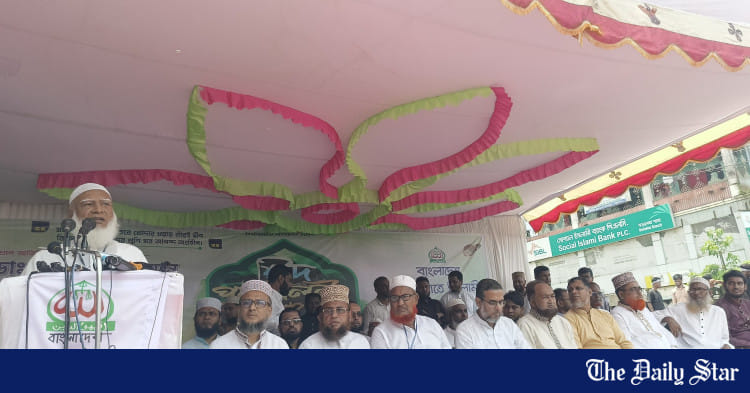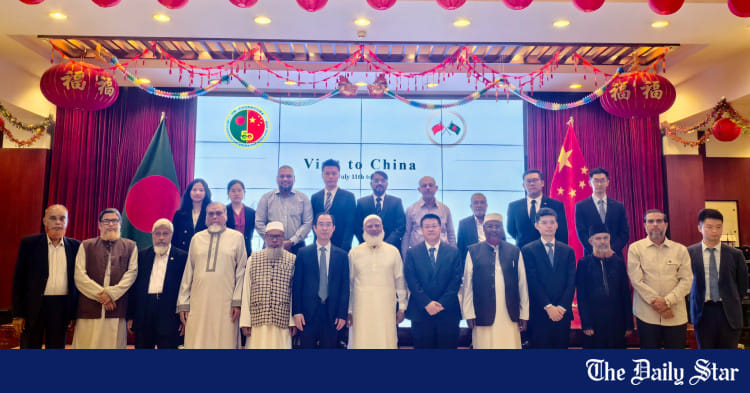Saif
Senior Member
- Joined
- Jan 24, 2024
- Messages
- 16,117
- Likes
- 8,060
- Nation

- Axis Group


Jamaat denies rumours of its leader's secret Doha visit
Jamaat-e-Islami has denied claims circulating on social media that party chief Shafiqur Rahman secretly visited Doha, Qatar. In a statement issued on Sunday, the party’s acting Secretary General, Maulana ATM Masum, said the rumour was false and intended to discredit the Jamaat leader, accord
Jamaat denies rumours of its leader's secret Doha visit
FE ONLINE DESK
Published :
Jun 01, 2025 23:00
Updated :
Jun 01, 2025 23:00

Jamaat-e-Islami has denied claims circulating on social media that party chief Shafiqur Rahman secretly visited Doha, Qatar.
In a statement issued on Sunday, the party’s acting Secretary General, Maulana ATM Masum, said the rumour was false and intended to discredit the Jamaat leader, according to local media.
He stated that Shafiqur Rahman remained in Bangladesh throughout the period in question and carried out various party activities. Between May 28 and 31, he attended events in Dhaka, led a student workshop, and chaired a central executive meeting.
On May 31, Rahman travelled to Syedpur to attend the closing session of a two-day training camp and returned to Dhaka the same evening. Jamaat has urged all to refrain from spreading misinformation.
FE ONLINE DESK
Published :
Jun 01, 2025 23:00
Updated :
Jun 01, 2025 23:00
Jamaat-e-Islami has denied claims circulating on social media that party chief Shafiqur Rahman secretly visited Doha, Qatar.
In a statement issued on Sunday, the party’s acting Secretary General, Maulana ATM Masum, said the rumour was false and intended to discredit the Jamaat leader, according to local media.
He stated that Shafiqur Rahman remained in Bangladesh throughout the period in question and carried out various party activities. Between May 28 and 31, he attended events in Dhaka, led a student workshop, and chaired a central executive meeting.
On May 31, Rahman travelled to Syedpur to attend the closing session of a two-day training camp and returned to Dhaka the same evening. Jamaat has urged all to refrain from spreading misinformation.










































